Cashless tipping without the asking
How to let customers pay cashless tips, without asking or pressuring them to do so...
In the last month, we've had three businesses tell us that "We don't let our staff solicit tips". These businesses said that, because of this policy, cashless tipping is not for them. That's fine, and we genuinely don't want our platform to be used to 'solicit tips' or annoy customers, but here's the rub: those same resorts program the card machines in their restaurants to coerce guests into paying tips to their waiting staff. Why is that OK, but something more discreet is unacceptable?
There is no need to ask for tips! Cashless tipping can be done in a way that is more tactful, and far less obtrusive, than the accepted norm when it comes to making credit card purchases.
Before we look at ways that cashless tipping can be implemented tactfully, it's worth taking a look at how businesses currently behave when we're making cashless purchases. This provides a stark contrast to the more friendly ways that cashless tipping can be implemented...
The current state of cashless tipping
Let's quickly remind ourselves of how tipping in Canada currently works in the cashless age.
Every time we buy something using a credit card we're asked to tip. This 'asking' ranges from simple through to coercive:
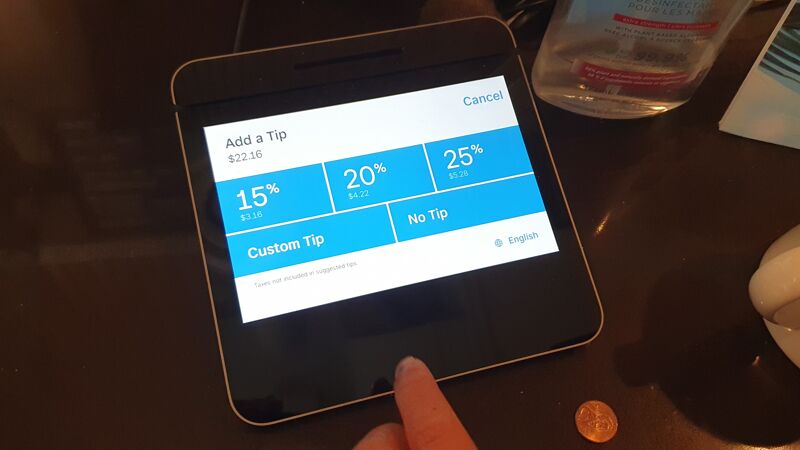
Simple: Giving an option to tip, alongside a clear 'no tip' option.
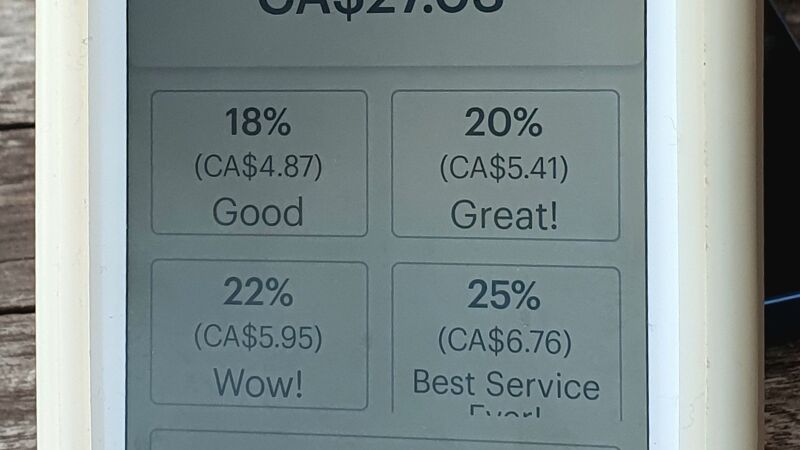
Manipulative: Associating a tip amount with a rating of the quality of the service.
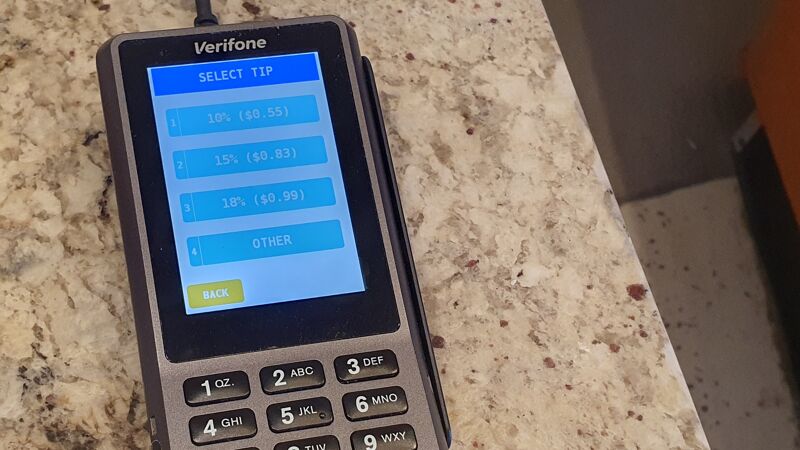
Coercive: Hiding the 'no tip' option and instead making customers figure out that they need to select 'other' and then 'no tip' to avoid having to pay extra. Not cool.
Businesses think that these pushy tactics to make us pay tips are acceptable. In fact, these tactics have become standard practice for businesses where tipping happens at point of sale (much to the dismay of customers). All the while, people such as housekeepers, tour guides, and ski instructors — who are at least as deserving as waiting staff — are all being passed over when it comes to tipping without cash. Businesses are all too happy to bully customers into tipping their waiting staff, but are unwilling to provide a discreet tipping option for their other hardworking employees. What gives?
How cashless tipping can be done better
A cashless tipping platform provides a mechanism by which a customer can pay a tip to an employee. All a business needs to do is to let customers know that the service is available to them. No one needs to ask for a tip, let alone be pushy about it. A cashless tipping service can be implemented far more tactfully than the pushy point of sale examples we saw earlier. Let's take a look...
Links
Web links are a fantastic way to give your customers access to a cashless tipping platform without pressuring them.
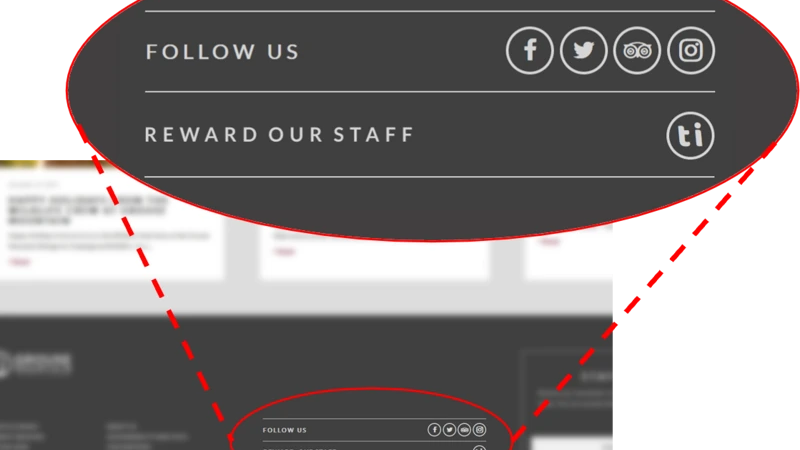
A simple 'reward our staff' link provides a discreet way to let customers access your cashless tipping platform of choice.
Links can go in the footer of your website, in the footer of booking emails, or in follow-up emails. The link can take customers directly to your 'landing page'*, complete with your own branding, even hosted on your own web domain, where a customer can quickly pay a tip to a member of your staff.
*A "landing page" is where a customer 'lands' after clicking on a link. Landing pages are designed with a single focus or goal, in this case, letting you pay a tip to someone.
Such links are unobtrusive, and totally passive; customers are not forced to make a selection as is the case with a card machine.
Business cards / vouchers
If you use business cards you could include a QR code to either your own personal cashless tipping page, or to your company's landing page:
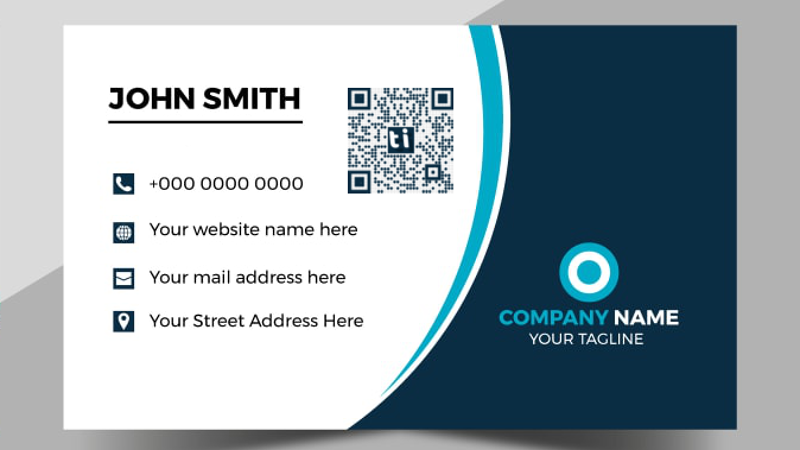
A business card with a QR code linking to a cashless tipping profile.
If you'd like your staff to give out vouchers, for example after a ski lesson, then leave a space for your staff to write in their details:
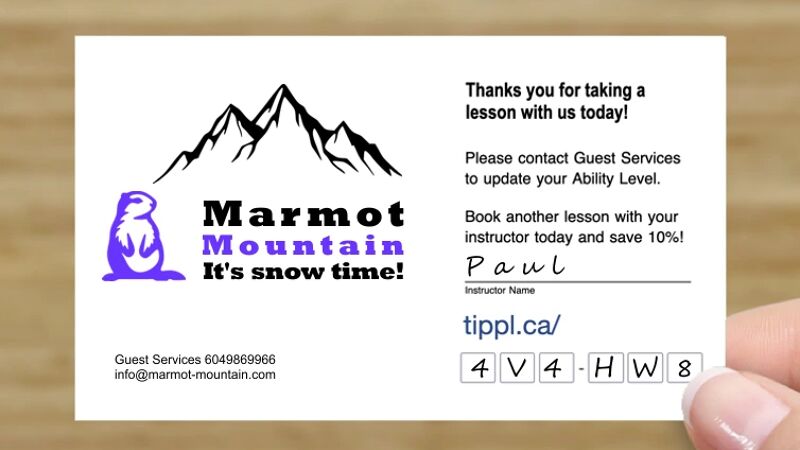
A voucher given out by a ski instructor after a lesson gives the customer a discount, and also provides them a link to pay a tip directly to the instructor.
Letting staff write in their details not only gives opportunity for a personal touch, it also means that you only need to print one design of voucher!
Signage
On-premises signage can take many forms. You could use a poster or a sign featuring some of your staff:
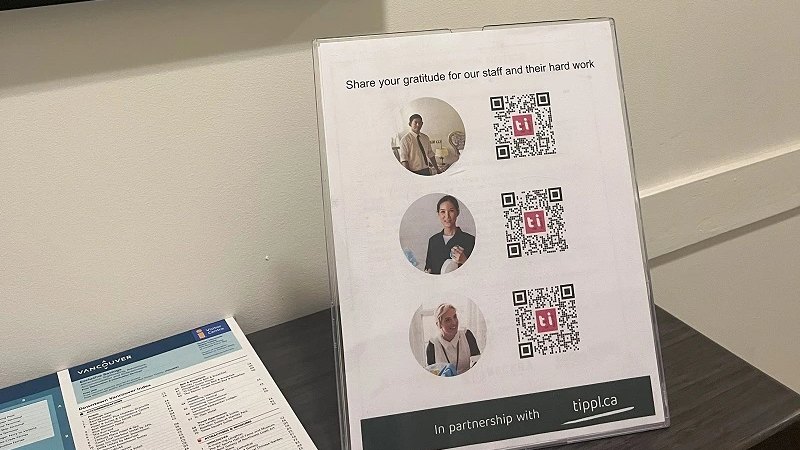
A sign outside a hotel elevator identifying which staff service that floor, and giving QR codes which link directly to their tipping pages.
Or you could use name cards, tent cards or door hangers to discreetly notify guests of the option to leave a tip:
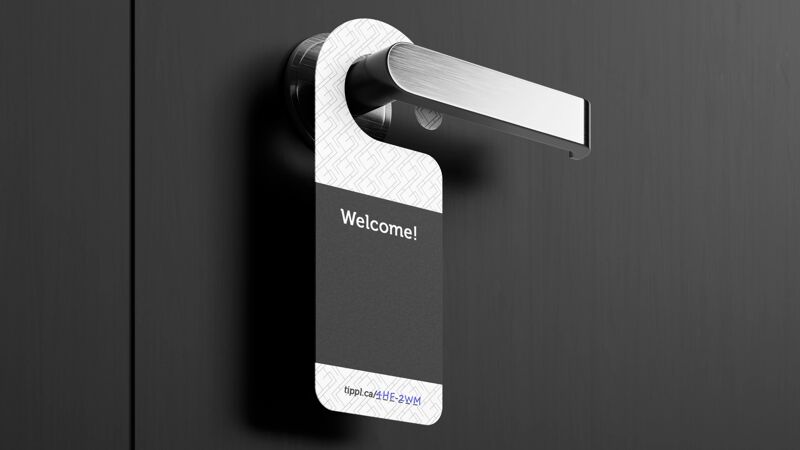
A door hanger can let a visitor know who serviced their room, and discreetly give a link to the housekeeper's cashless tipping page.
Summary
Cashless tipping provides a mechanism for people to pay tips. Customers can be discreetly made aware of the option to tip. They then have the option to tip when it is most convenient for them, be it on the spot or some time later when they aren't being watched over judgingly by staff. There is no need to ask for tips!
Tippl. Cashless tipping, made simple.

Last updated June 9, 2025
Adam is an engineer who enjoys a good adventure, and lately he has started to become an expert in all things tipping. After a series of separate adventures with great guides where he found it difficult to pay a tip he decided to create tippl.
